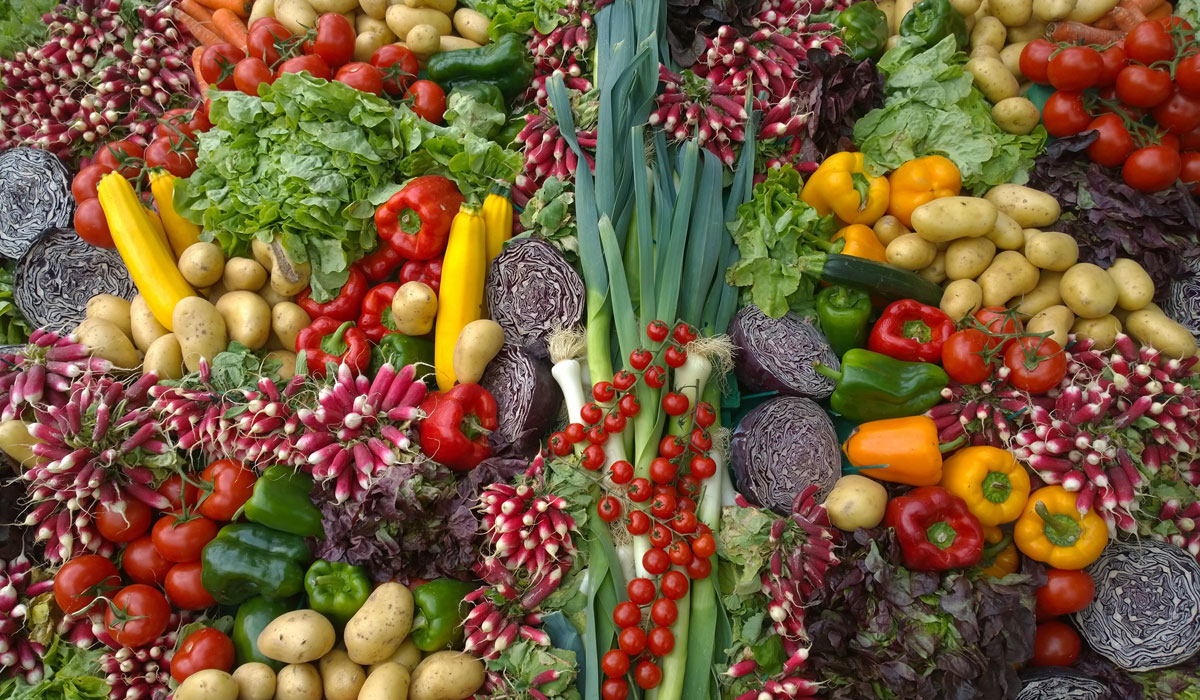Food waste has become an increasingly popular topic within the industry as more restaurateurs begin to understand its consequences. About 1.3 billion tons of food are wasted each year around the world; more than 70 percent of food waste occurs before it even gets to a customer’s plate, and around 40 percent of that waste comes from restaurants. Food waste has a profound impact on profits, food insecurity, the economy, and the environment. As industry leaders reflect on this past year and look towards the new year, many promising trends have emerged within the restaurant sector, including shelf life-extending technology, food waste digesters and dehydrators, and smarter kitchen equipment.
Because around 45 percent of all fruit grown is wasted, new innovations in the supply chain that allow produce to stay fresher for longer while in transport to restaurants could have a huge impact on reducing waste. Luckily, 2019 has been a strong year for these developing technologies. One such startup, Safe Traces, is improving food traceability by providing a safe on-food solution that is applied to product during the wash cycle. The undetectable and edible tracing solution delivers full transparency about where the food comes from and the journey it has taken. This enables producers and processors to protect their brands, and reduce food waste by better understanding where problems occur in the supply chain, before the ingredients even gets to the restaurant. Another company helping minimize food waste through the supply chain is Zest Labs, whose sensors gather information about harvest quality, a product’s aging rate, field conditions, and microclimate to determine exactly how long a product will last.
By gathering this information up front, the industry can better predict shelf-life which can help a restaurant with freshness management. These sensors are also affixed to the pallets that transport the food, to again help locate where waste is occurring in the supply chain. This type of technology works to prevent food from spoiling as soon as it arrives in a restaurant. According to Supply Chain Dive, using this technology could reduce food waste by at least 5 percent within the supply chain. In 2020, restaurant owners can expect that partners may be investing into shelf life-extending technology.
Another trend to watch is technology to deal with food waste such as the use of food waste digesters and dehydrators. More and more facilities are incorporating these machines into their restaurant to minimize the amount of food waste that gets sent to landfills. Digesters first grind up food waste material before breaking it up using a biological additive to accelerate decomposition. Digesters turn organic waste into value-added products. Dehydrators, on the other hand, reduce the weight and volume of the food waste prior to hauling, using a mechanical and thermal approach. Digesters and dehydrators can both handle a variety of volumes of food waste, so be sure to select a model that best matches your restaurant’s needs.
Lastly, within commercial kitchens, several startups have created solutions that target food waste as it is being created. Recently, commercial kitchen equipment has become more efficient and technologically advanced. Some of the advancements in the last few years have helped reduce downtime, energy efficiency and onboarding. As a result, 2020 should see a huge wave of integration of these technologies. For example, Winnow, an AI-powered smart waste bin company, recently raised $12M to improve its technology and focus on product development. According to the brand, kitchens using Winnow tend to see a 40 to 70 percent reduction in food waste within six to 12 months, driving food cost savings between two and eight percent in total. Similar technologies claim to pass the human level accuracy when it comes to waste sorting. In 2020, expect to see this type of technology becoming smarter and being widely implemented within the industry.
In conclusion, new food waste technology trends are propelling restaurants forward on a much greener path. Shelf life-extending technology within the supply chain, digesters and dehydrators, and AI-powered waste bins are the catalyst for the industry’s improvement. With innovation in mind, restaurant operators should stay abreast of these developing trends to become early adopters of food waste reduction efforts. As customers continue to seek out restaurants that prioritize sustainability, restaurants can capitalize on this movement by making their own operations environmentally conscious. Restaurant properties should expect even more innovation in 2020, as change makers harness new technology for good.
Matthew S. Hollis is the co-founder and President of Elytus, a third-party administrator that helps clients streamline waste and recycling operations while becoming more sustainable in the process. As a part of its #WasteNothing motto, Elytus believes in saving time, money and the environment.










